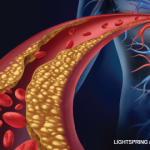And narcotics—be sure that you use lots of those, To treat inflammation in fingers and toes. Reduction in swelling? The joints might not show it, But your patient will be too obtunded to know it!”
So how should we deal with this unsought advice? Should we fuss and protest or instead just make nice? Should our own guidelines undergo major revision, Or should we instead merely laugh in derision?
We might instead say, “Cardiology friends, It seems that our specialties could make amends, If you, notwithstanding the size of your fees, Acknowledged some limits of your expertise,
And saw that when treating arthritic disease Rheumatology input is critical, please!”
Dr. Fox is chief of rheumatology at the University of Michigan in Ann Arbor.
ACR Speaks Out: Comments from the College
The AHA recently issued a position statement on the use of NSAIDs.1 While this statement provides a useful overview of the published studies relating to cardiovascular risk associated with both the selective and non-selective COX inhibitor NSAIDs, the position statement suggests a treatment strategy for arthritis pain that is not based on solid evidence or clinical judgment.
As the current president and members of the Drug Safety Committee of the ACR, we feel that the “stepped-care approach to management of musculoskeletal symptoms” in this article oversimplifies the management of patients with rheumatic diseases. In many acute and chronic musculoskeletal disorders, the pathophysiologic underpinnings are a direct result of inflammation. NSAIDs have been shown to specifically suppress the inflammatory process and provide excellent relief in many painful rheumatic conditions in both experimental and clinical studies. These agents improve symptoms and minimize tissue complications associated with progression of inflammatory processes.
Randomized placebo and active controlled clinical trials have established the efficacy of NSAIDs over and above many other analgesic agents. Moreover, to be effective in suppressing the inflammatory process, these NSAIDS need to be used in the pharmacologic doses and dosing duration found to suppress the COX mediated inflammatory process. RA, the spondyloarthropathies, psoriatic arthritis, and osteoarthritis have been shown to cause early death, chronic disability, and a significant negative effect on overall quality of life.2
While we appreciate the documented cardiovascular toxicity associated with selective and non-selective NSAIDs, the current AHA statement does not reflect the proven benefits of these agents in patients with arthritis and other chronic inflammatory conditions. Sufficient treatment options are critical for patients with arthritis. Just as collaborative treatment plans for a given patient result in improved care, we urge the cardiology community to engage their rheumatology colleagues in formulating optimal recommendations for the use of NSAIDs.


